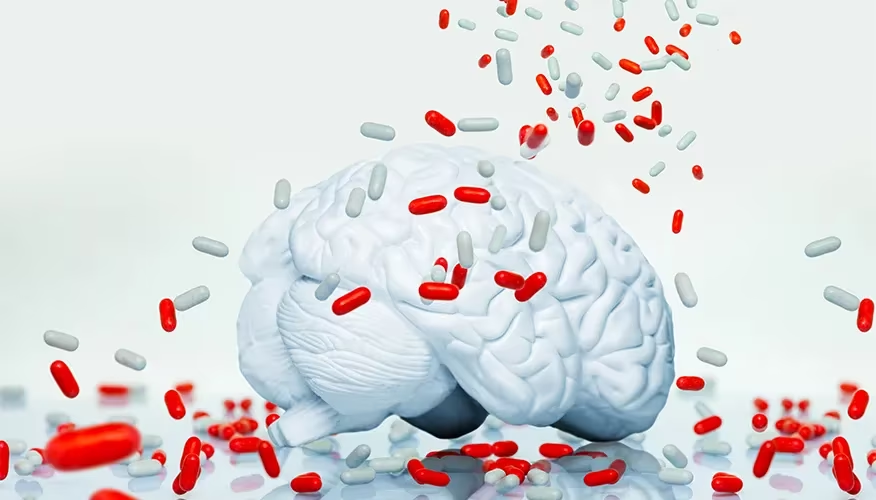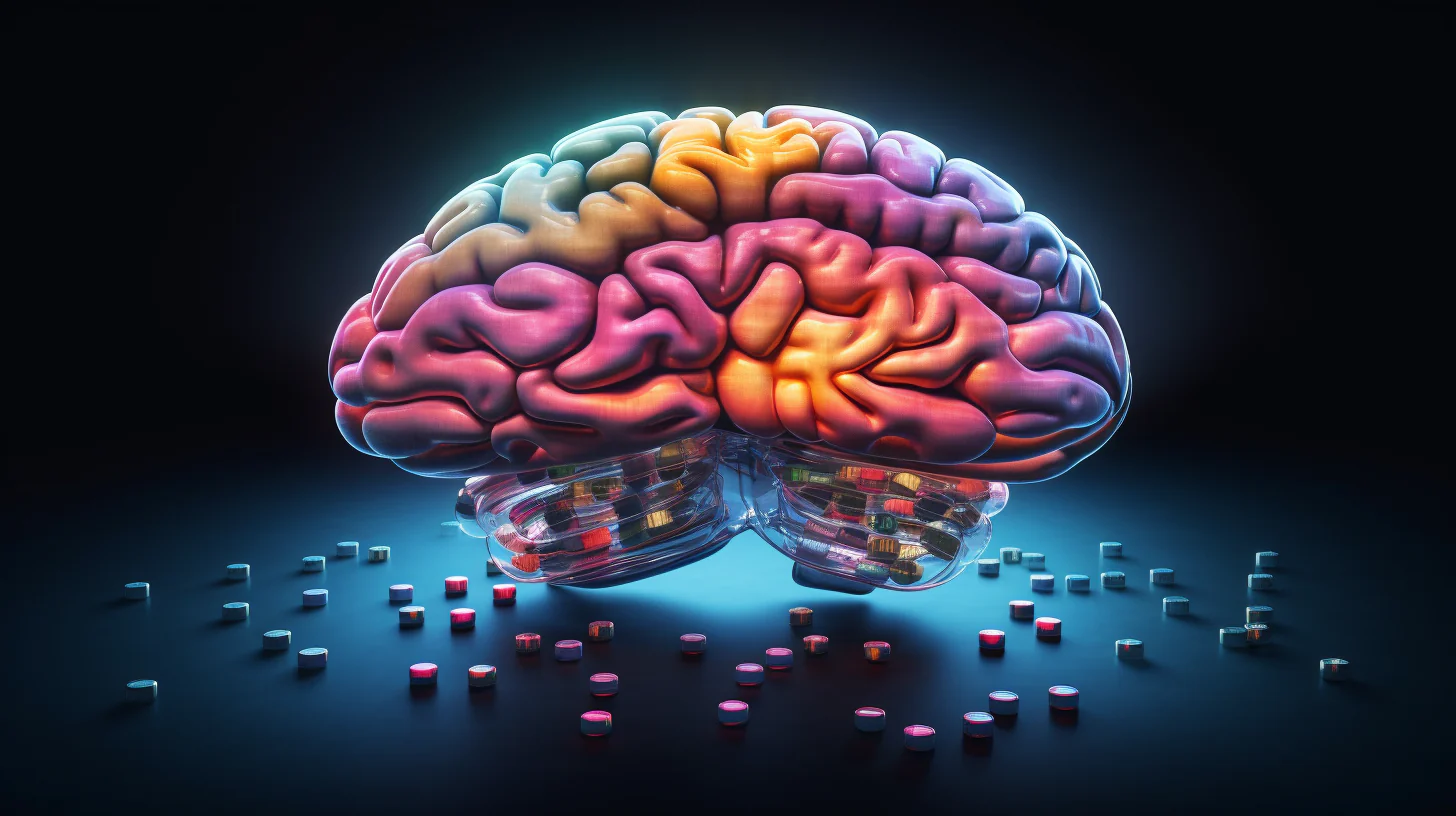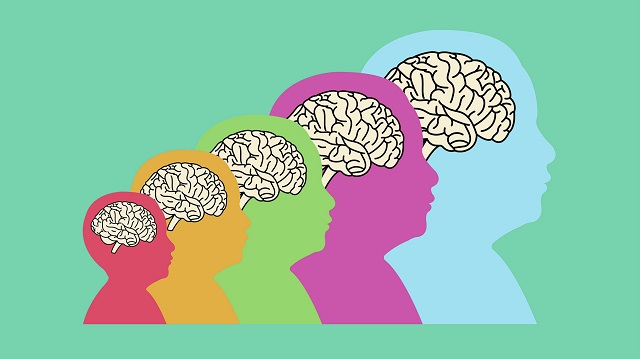جدول محتواها
Introduction: How Carbon Dioxide Affects Brain Function
Effects of carbon dioxide on mental performance are often overlooked, yet they play a crucial role in brain function. Carbon dioxide (CO₂) is a natural byproduct of respiration, but when levels rise too high—whether due to poor ventilation, air pollution, or underlying health conditions—it can negatively impact cognitive abilities.
High CO₂ levels reduce oxygen availability in the brain, leading to symptoms such as brain fog, fatigue, difficulty concentrating, and even mood disturbances. Understanding how CO₂ affects mental clarity and overall brain health is essential for optimizing cognitive performance and maintaining long-term neurological well-being.
What Is Carbon Dioxide, and How Does It Build Up in the Body?
Carbon dioxide (CO₂) is a colorless, odorless gas that is naturally produced as a byproduct of cellular respiration. Every time we breathe, our body converts oxygen into energy, releasing CO₂ as waste, which is then expelled through the lungs.
However, when CO₂ builds up in the body—due to poor ventilation, shallow breathing, or underlying respiratory issues—it can disrupt the delicate balance of oxygen and carbon dioxide in the bloodstream. This imbalance, known as hypercapnia, can lead to dizziness, confusion, and impaired cognitive function.
Understanding how CO₂ accumulates and affects the body is key to maintaining optimal brain health and mental performance.
The Science Behind CO₂ and Cognitive Performance
The effects of carbon dioxide on mental performance are closely linked to how the brain regulates oxygen levels. When CO₂ levels rise, the blood becomes more acidic, triggering a condition called respiratory acidosis. This disrupts the brain’s ability to function efficiently, as neurons require a stable pH and a constant supply of oxygen to transmit signals properly. Studies show that even mild elevations in CO₂ can lead to cognitive decline, reduced concentration, slower reaction times, and increased mental fatigue.
Over time, prolonged exposure to high CO₂ levels may impair memory, decision-making, and overall brain health, highlighting the importance of proper ventilation, deep breathing, and lifestyle adjustments to optimize cognitive performance.
Symptoms of High CO₂ Levels: How It Affects Mental Clarity

- Brain Fog and Confusion: High CO₂ levels can make it difficult to think clearly, leading to mental sluggishness and reduced problem-solving abilities.
- Fatigue and Drowsiness: Excess carbon dioxide disrupts oxygen flow to the brain, causing persistent tiredness and lack of energy.
- Headaches and Dizziness: Increased CO₂ can trigger headaches and a feeling of lightheadedness, making it harder to stay focused.
- Short-Term Memory Issues: Difficulty recalling recent information is a common sign of elevated CO₂ levels affecting cognitive function.
- Mood Changes and Irritability: High carbon dioxide levels can alter brain chemistry, leading to mood swings, anxiety, and increased stress.
- Impaired Concentration: The effects of carbon dioxide on mental performance include difficulty maintaining attention, slower reaction times, and reduced productivity.
CO₂ Exposure in Daily Life: Where Are You at Risk?
- Poorly Ventilated Indoor Spaces: Offices, classrooms, and homes with inadequate airflow can trap CO₂, leading to sluggish thinking and fatigue.
- Crowded Public Transport: Buses, trains, and airplanes with limited ventilation can cause a buildup of CO₂, affecting alertness and mental clarity.
- Closed Bedrooms at Night: Sleeping in a tightly sealed room without fresh air circulation can increase CO₂ levels, leading to morning grogginess and headaches.
- Workspaces with High CO₂ Emissions: Factories, laboratories, or any environment with combustion processes can expose workers to excessive carbon dioxide.
- Heavy Traffic and Urban Pollution: Spending long hours in traffic or polluted urban areas increases CO₂ inhalation, which may contribute to cognitive fatigue.
- Intense Physical Activity in Confined Spaces: Gyms or workout areas with poor ventilation can cause CO₂ to rise quickly, impacting endurance and focus.
Long-Term Effects of High Carbon Dioxide on Brain Health
- Chronic Cognitive Decline: Prolonged exposure to high CO₂ levels may contribute to memory loss, difficulty concentrating, and slower mental processing over time.
- Increased Risk of Neurodegenerative Diseases: Studies suggest that long-term CO₂ buildup could elevate the risk of conditions like dementia and Alzheimer’s disease.
- Persistent Fatigue and Low Energy Levels: Extended periods of high CO₂ exposure can disrupt oxygen delivery to the brain, leading to ongoing tiredness and reduced mental stamina.
- Mood Disorders and Emotional Imbalance: Long-term CO₂ exposure can alter brain chemistry, increasing the likelihood of anxiety, depression, and mood swings.
- Reduced Problem-Solving and Decision-Making Abilities: A consistently high CO₂ environment may impair executive function, making it harder to process information and make sound decisions.
- Increased Brain Inflammation: Chronic exposure to elevated CO₂ levels can trigger low-grade inflammation in the brain, potentially affecting overall neurological health.
Can You Improve Mental Performance by Reducing CO₂ Exposure?

Minimizing CO₂ exposure is a crucial step in enhancing cognitive function and overall brain health. Since the effects of carbon dioxide on mental performance include brain fog, fatigue, and reduced focus, taking proactive measures can significantly improve mental clarity.
Simple strategies such as ensuring proper ventilation in indoor spaces, taking breaks in fresh air, practicing deep breathing exercises, and using air-purifying plants can help lower CO₂ levels. Additionally, staying hydrated and engaging in regular physical activity supports efficient oxygen circulation, counteracting the negative impact of high CO₂. By reducing exposure to excess carbon dioxide, you can optimize brain function, boost productivity, and enhance long-term cognitive health.
How to Optimize Brain Function: Oxygen, Lifestyle, and Supplements
- Improve Air Quality: Keep indoor spaces well-ventilated, use air purifiers, and open windows regularly to reduce CO₂ buildup.
- Practice Deep Breathing Exercises: Techniques like diaphragmatic breathing and meditation can increase oxygen intake and enhance mental clarity.
- Stay Hydrated: Proper hydration supports efficient blood flow and oxygen delivery to the brain, improving focus and cognitive function.
- Engage in Regular Physical Activity: Exercise boosts circulation, helping to clear excess CO₂ and improve brain performance.
- Maintain a Balanced Diet: Eating oxygen-rich foods like leafy greens, berries, and nuts can support brain health and cognitive function.
- Get Quality Sleep: Proper rest allows the brain to recover and regulate oxygen and CO₂ levels for optimal performance.
- Use Cognitive-Enhancing Supplements: Supplements like Lilia Neuro Care provide essential nutrients that support brain function, memory, and mental clarity.
Conclusion: Taking Control of Your Brain Health
Understanding the effects of carbon dioxide on mental performance is essential for maintaining long-term brain health and cognitive efficiency. High CO₂ levels can silently impact focus, memory, and decision-making, but by taking simple steps—such as improving ventilation, practicing deep breathing, staying active, and using brain-supporting supplements—you can enhance mental clarity and overall well-being.
Prioritizing oxygen intake and reducing CO₂ exposure not only boosts productivity but also safeguards neurological health as you age. By making these small but impactful lifestyle changes, you can take full control of your brain’s performance and unlock its highest potential.
FAQs
How do high CO₂ levels affect mental performance?
Elevated CO₂ levels reduce oxygen availability in the brain, leading to brain fog, fatigue, headaches, and impaired concentration.
What are common sources of CO₂ exposure in daily life?
Poorly ventilated indoor spaces, crowded public transport, urban pollution, and confined workspaces can all contribute to increased CO₂ levels.
How can I reduce CO₂ buildup and improve cognitive function?
Ensure proper ventilation, practice deep breathing, stay active, hydrate well, and consider brain-boosting supplements like Lilia Neuro Care.
Can long-term exposure to high CO₂ levels cause permanent brain damage?
Chronic CO₂ exposure may contribute to cognitive decline, memory issues, and an increased risk of neurodegenerative diseases over time.







